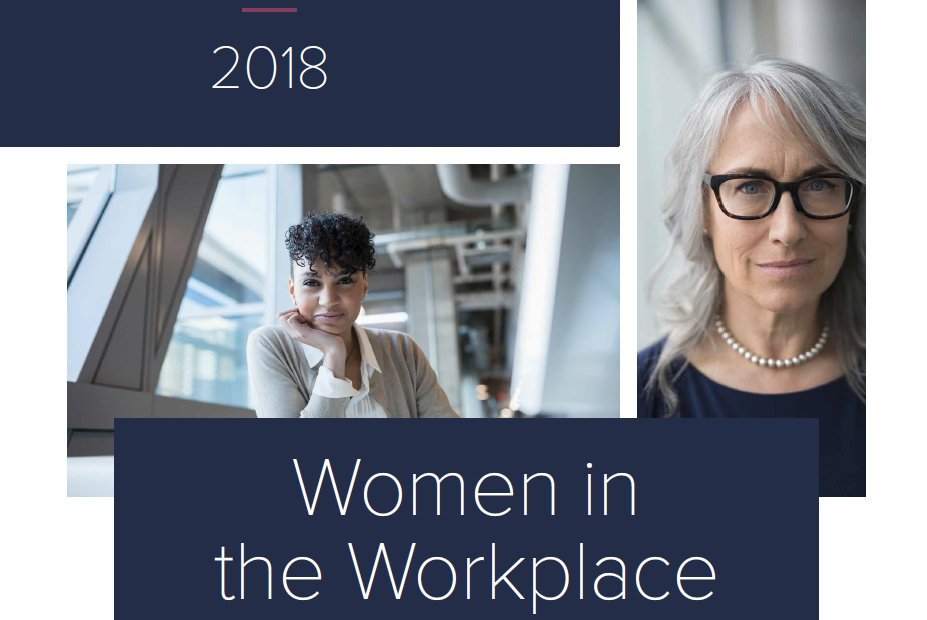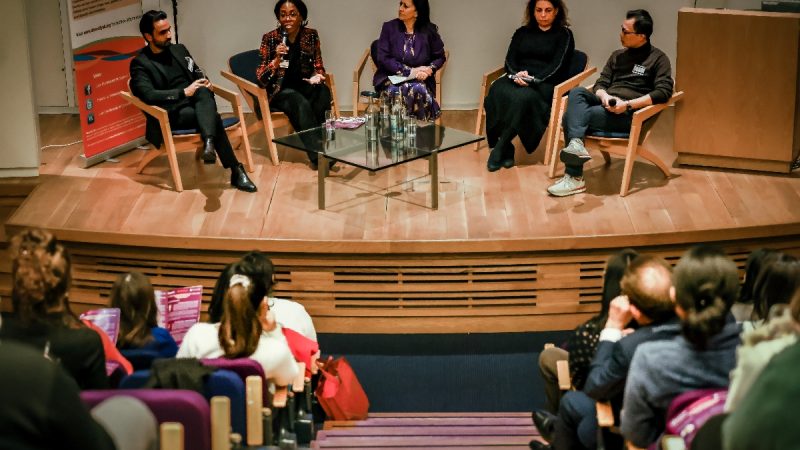Women in the Workplace: Beyond good intentions

In the fourth year of McKinsey’s ongoing research ‘Women in the Workplace’, in partnership with LeanIn.org, it found that progress on gender diversity at work has stalled. Companies report that they are highly committed to gender diversity. But that commitment has not translated into meaningful progress. To achieve equality, companies must turn good intentions into concrete action.
Companies need to treat gender diversity like the business priority it is.
Experts agree that articulating a business case, setting goals and reporting on progress, and rewarding success are key to driving organizational change. When it comes to gender diversity, more companies need to put these practices in place.
- Only 38% of companies set targets for gender representation, even though setting goals is the first step toward achieving any business priority.
- Only 12% share a majority of gender diversity metrics with their employees, even though transparency is a helpful way to signal a company’s commitment to change.
- Only 42% hold senior leaders accountable for making progress toward gender parity, and even fewer hold managers and directors accountable.
Yet it’s hard to imagine a groundswell of change when leaders aren’t formally expected to drive it.
Women are left behind from the get-go
The two biggest drivers of the pipeline are hiring and promotions, and companies are disadvantaging women in these areas from the beginning. Although women earn more bachelor’s degrees than men, they are less likely to be hired into entry-level jobs. At the first critical step up to manager, the disparity widens further. Women are less likely to be hired into manager-level jobs, and they are far less likely to be promoted into them. Largely because of these gender gaps, men end up holding 62% of manager positions, while women hold only 38%.
This early inequality has a profound impact on the talent pipeline. Starting at the manager level, there are significantly fewer women to promote from within and significantly fewer women at the right experience level to hire in from the outside. So even though hiring and promotion rates improve at more senior levels, women can never catch up.
Companies should foster an inclusive and respectful culture
Women are more likely to face everyday discrimination - or microaggressions - like being subjected to demeaning comments, having to provide more evidence of their competence, or being mistaken for someone much more junior. For 64% of women - and 71% of lesbian women - microaggressions are a workplace reality. Sexual harassment also continues to pervade the workplace: 35% of women have experienced sexual harassment at some point in their career, from hearing sexist jokes to being touched in an inappropriately sexual way.
Women and men point to the need for companies to do more to create a safe and respectful work environment.
- Only 27% of employees say that managers regularly challenge biased language and behavior when they observe it.
- 40% say that disrespectful behavior toward women is often quickly addressed by their company
- 32% think that their company swiftly acts on claims of sexual harassment.
Women are too often the “Only” one
Too few women results in too many “Onlys” - women who are the only or one of the only women in the room. One in five women is an Only, and they are having a significantly worse experience than women who work with more women. They are more likely to deal with microaggressions. They often feel on guard, pressure to perform, and left out. And they are almost twice as likely to have been sexually harassed during the course of their career.
These negative experiences take a toll on women Onlys. Despite having higher ambitions to be promoted and become a top executive, they are 1.5 times more likely to think about leaving their job than women who are not Onlys.
About the Women in the Workplace study
Women in the Workplace 2018 is the largest comprehensive study of the state of women in corporate America. Since 2015, LeanIn.Org and McKinsey & Company have published this report annually to give companies and employees the information they need to advance women and improve gender diversity within their organizations. McKinsey & Company also conducted similar research in 2012. This year, 279 companies employing more than 13 million people shared their pipeline data and completed a survey of their HR practices. In addition, more than 64,000 employees were surveyed on their workplace experiences, and we interviewed women of different races and ethnicities and LGBTQ women for additional insights. Since 2015, 462 companies employing almost 20 million people have participated in the study.
For further information visit https://womenintheworkplace.com/




